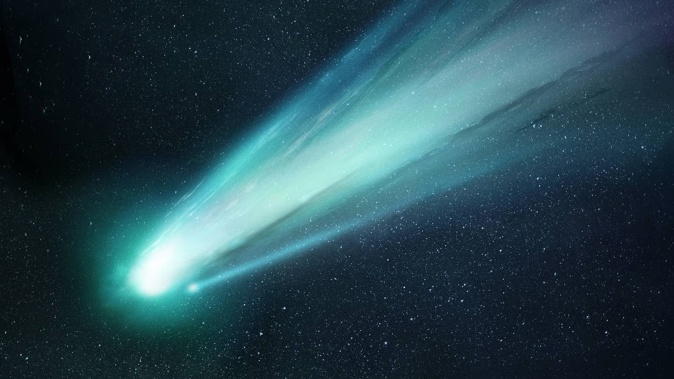
By RNZ
A comet that last passed Earth around 50,000 years ago will be visible in New Zealand skies this week.
Comet C/2022 E3 (ZTF), from the distant Oort cloud, can now be seen from the Northern Hemisphere but those with binoculars may be able to spot it here this coming weekend.
Amateur astronomer Dr Tom Love told Morning Report the comet was green because it had lots of carbon on it that was being “evaporated off by the sun”.
“That means it’s a comet from the very distant Oort cloud - the outer edges of the solar system,” he said.
“It’s a little parcel of history from the early stages of the solar system, and that’s what makes it interesting to scientists.”
The comet was closest to Earth as it passed through the solar system in mid-January, he said.
“But even then, it was still a hundred times further away than the moon, so it’s not super bright in the sky, but you can see it with a pair of binoculars.”
It would look like “a little green smudge”, Love said.
“If you’re lucky you might even see a little bit of a tail, but it won’t, in all honesty, be a hugely spectacular sight.”
It is, however, the first time people have had a chance to see the comet as it passes Earth.
“There wouldn’t have been humans last time it came through,” Love said.
“Comets from the Oort cloud do pass by reasonably regularly - every few years we do see one.
“This particular comet, it’s pretty rare to see, but it has friends and relations that we see every so often.”
How to see the green comet
Love said those who wanted to observe the comet could improve their chances by finding a place without too much light pollution.
Waiting until later in the week would also help, and would-be viewers should look to the north.
“If you wait ‘til this weekend, when the moon rises a bit later, you’ll get a dark patch in the early evening, before the moon rises and that’s the time to go and have a look,” he said.
“If you look pretty much to your north you’ll see a pretty distinctive reddish star, and that’s the planet Mars, and the comet - at the moment - is a little bit below Mars.
The comet would be “almost exactly next to Mars” on the night of February 11, he said, before rising a bit higher in the sky every night after that.
Take your Radio, Podcasts and Music with you









